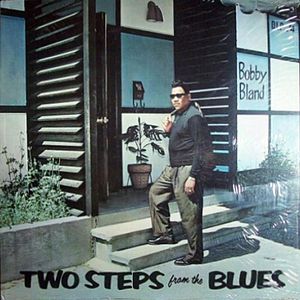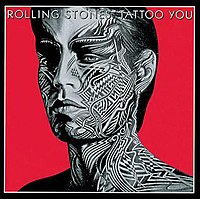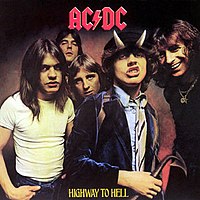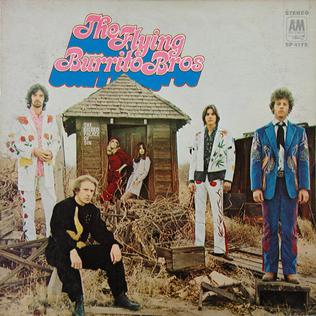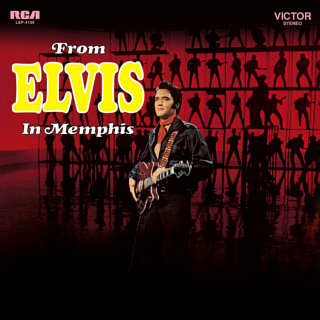 Band:
Band: Nine Inch Nails
Album: The Downward Spiral
Why Rolling Stone gets it right: Trent Reznor's greatest work, "The Downward Spiral" is a very loose rock opera/concept album wherein the protagonist tries to detach himself from society by escapes such as sex, drugs and violence. Filled with angst, self-hate and remorse, the album is a depressing suburban recitation of life in a post-modern, post-self-help world.
Why Rolling Stone gets it wrong: I'd be remiss if I didn't mention Reznor's decidedly adolescent lyrics. While this record is much more mature than "Broken" or "Pretty Hate Machine," the 15-year-old writing poetry thing is still there, specifically on the album closer, "Hurt." Nevertheless, "The Downward Spiral" is on par, I think, with other adolescent angst albums and should be higher.
Best song: "Closer" is among Reznor's greatest works. From its juxtaposition of a simple augmented piano melody against a dissonant guitar breakdown to its fury-filled hedonistic (notice I didn't say sexist) lyrics, "Closer" is a brilliant piece of music. It fits perfectly into the record's overall concept/theme and worked just as well as a single. Outside of "Closer," "Heresy" is an awesome song, though he gets Nietzsche mostly wrong. Also, "March Of The Pigs" is an awesome metal record.
Worst song: I'm torn on "Big Man With A Gun." The sheer lewdness of it is off-putting, but the song fits in with the concept of the album quite well.
Is it awesome?: Absolutely. Reznor's best work, hands down.
"The Downward Spiral," like "Nevermind," has something of a perfect storm aspect to it with me. It came out just before I was in the prime pre-angst age range (I was 13 when it was released). It's got a lot of metal overtones, it's catchy and has enough pop hooks to keep anyone interested and it's mildly literate (from Reznor's constant references to Christ's passion to his misguided reading of "God is dead").
It's sort of ironic, because I went through a real TDS backlash up until the last year or so about NIN. I should have totally identified with the record, but really just thought it to be an angst-ridden piece of teenage garbage. Still, I've come to love it and consider it to be a top album.
---
That's not to say TDS isn't an angst-ridden piece of teenage garbage. It is, in a lot of ways. Reznor's way with lyrics isn't fully formed to be conversational (like the Elliott Smithes and Bob Dylans of the world) or simple enough to be powerful (like the classic songwriters). Rather, his worse lyrics sound like muddied poetry a 15-year-old in spooky goth makeup would present to his AP English teacher.
For me, there's a certain feeling of identification with Reznor. Like Reznor friend Al Jourgensen (of Ministry and an alumnus of my alma mater, New Trier High School), Reznor's voice has a tinge of suburban privelege to it. Like a teenage to which nothing has ever been hard, Reznor's vocal boils under a thin veneer of disappointment and tantrum-throwing. Trust me, I know this as well as anyone; Suburban privilege is the internal demon I am always fighting.
---
A not about misogyny:
Reznor gets hammered by my least favorite people in American culture -- the moralists -- a lot for the lyrics on the album's masterful centerpiece, "Closer." The song, an ode to the favors of the flesh, is dirty. It's real dirty. It's not dirty in the
I'd argue that "Closer" is two three. First, as a part of a greater whole, it's a key point in the record's theme of self-destruction through a self-reflection in something that would be considered -- ironically, by the moralists themselves -- immoral or amoral means. The main character of the record is trying to find himself through the window of making love (it sounds less threatening when I use that term, doesn't it?), ultimately failing.
As a standalone song, on the other hand, "Closer" is something close to an ode to a post-sexist, post-religious world. Specifically, the lyrical piece in question ("I want to fuck you like an animal/I want to feel you from the inside/I want to fuck you like an animal/My whole existence is flawed/You get me closer to god") is as a much a pansexual/pagan ode to the spiritual female.
First, the idea of fucking "like an animal" sounds -- largely because of Reznor's delivery -- something less than savory. That couldn't be further from the truth; Fucking like an animal is the story of passion in this case, as evidenced by the lyrics that follow it. Coming from a man's perspective, "I want to feel you from the inside" is deliberately ambiguous and can easily be interpreted as feeling a woman's inside. I'd argue, however, that the "feel you from the inside" line is an ode to female sexuality; Reznor wants to feel like a woman and feel sex "from the inside," if you consider the female genitalia.
This theory is furthered by Reznor's spoken word portion of the song during the instrumental breakdown before the album's theme (the chromatic piano riff) comes up towards the end of the song. Being the last words of the song, the four line break uses metaphor for the female sexual organs and the is overly laudatory:
Through every forest, above the trees
Within my stomach, scraped off my knees
I drink the honey inside your hive
You are the reason I stay alive
The honey/hive metaphor isn't exactly subtle, but it speaks to a healing/redemptive power of the spiritual female. The song's lyrical progression is one that back this up, as the "help me" pre-chorus portion of the song is a plea for assistance, with the second verse being a full press towards the sexual female, essentially, making it all better. The song's protagonist, in fact, even offers up his entire being for satisfaction, bargaining away his "absence of faith," "isolation" and "hate," all things that make up his "everything."
It's a brilliantly desperate, laudatory song. It's not sexist.
(
The video furthers this point, with photos of Reznor tied up as a sub in S&M gear, as well as anatomical drawings and photos of the female sexual organ. A woman in a mask also looms over the song, acting as the dominant figure towards the end of the song.)
---
The construction of "Closer" is why it's the brilliant piece of the album. The almost pneumatic 4/4 beat that starts the song is mechanical in its, well, rhythm. Layering further hi-hats on the off-beats adds to the song's layering. The toy chromatic piano theme --known as either the "Closer Theme" or "The Downward Spiral Theme" as it appears on the album a few times -- is doubled at the end of the song as the backing dissonance fades -- It becomes s a clear sound in an ocean of feedback.
Using a similar approach as the best Eno/Bowie projects, Reznor meticulously adds drop-beats and mechanized drums over soft opening human wails in "The Becoming," while the laid back beat of "Piggy" is slowly augmented by distortion, feedback and dissonant harmonics. The machine-gun guitar of "Heresy" and the driving 7/8 drums of "March Of The Pigs" both are progressive metal defined and the drums on much of the rest of the album ("Heresy" and "Closer" being the operative ones) are much more like the industrial of Einstürzende Neubauten and Ministry. "Ruiner" has the drum beat of a disco record, while "Big Man With A Gun" is something all in itself.
Each track, though, is multi-layered, deep and almost orchestral in its production. There's no real simplicity in the record, save the final track, "Hurt."
---
TDS is like a great album in its need to be listened to on a pair of good headphones. I think of "The Becoming" particularly in the end of the song has shot-like notes coming from each side towards the end of the song as Reznor crescendos into a scream of "Don't give up, it wants me dead. Goddamn this voice inside my head" all while machine-gun drums add to the song's climax.
"Mr. Self Destruct" starts out with a movie sample and breaks down into another cacophony of sound that's lost on crappy speakers. Listening on headphones brings out the small nuances in the record, overall.
---
"Big Man With A Gun" is probably also targeted by the moralists. I understand why; These people don't look at the song in the context of the album. First, "Big Man With A Gun" is not something anyone would want to emulate and Reznor makes that abundantly clear; The hyperbolic nature of the song is something you'd only hear in an ironic tone. Secondly, the protagonist of the album is someone the listener is to identify with, but clearly see going over the edge of madness. "Big Man With A Gun" is certainly the picture of madness and for anyone to think Reznor is condoning rape or handgun violence is wrong.
---
Another of the hallmarks of a great album is when you listen to it multiple times, you can find a new favorite song on almost every listen. TDS has given me that pleasure this week. "Close" was the album's biggest hit -- and best song -- but "Piggy," "The Becoming," "March Of The Pigs," "Mr. Self Destruct," "Reptile" and "Heresy" are all similarly great in their own ways.
"The Becoming," for me, is definitely a new favorite of mine. A thematic mix of "Blade Runner" and the album's theme of self-flagellation, "The Becoming" is an introspective look into the main character's transformation.
Musically and lyrically, the song plays on the dichotomy of human and machine. Industrial music (if you'd call NIN "industrial") plays on this juxtaposition as a genre, but this song isn't exactly subtle. The song's acoustic guitar breakdowns are the only really melodic, pleasant, non-robotic parts, having the ooooo-ing vocals and folky guitar we're more used to on a Paul Simon record. The first breakdown, lyrically, is decidedly human, albeit scary:
Hiding backwards inside of me I feel so unafraid
Annie, hold a little tighter I might just slip away
Of course, to further place this juxtaposition in its context, the immediate musical piece is full of computer sounds and dissonant screeches. The machine, clearly, takes over the human there, musically.
Lyrically, the song speaks of being "made up of wires" and "All pain" disappearing, as "it's the nature of my circuitry."
This theme is better-tread on, basically, every Radiohead record, but the idea of our reliance on machines is something to think about and Reznor does it well here.
---
TDS is an easy target and I understand that. It's decidedly sincere and
sincerity is an easy target. It
is immature in a lot of ways, from the self-inflicted "Hurt" to the high schooler's reading of Nietzsche on "Heresy" (
"god is dead" is not an anti-religious creed, but rather a question of humanity's search for meaning. Often forgotten is the next lone, "And we have filled him.").
I'm not going to argue with any of that; Reznor's writing is melodramatic and overbearing. But, in this particular genre -- the disco-y industrial thing -- melodrama is par for the course. Considering the self-destructive main character of the concept album, melodrama is the best storytelling tool. It doesn't work as well on Reznor's other NIN records (those without a unifying theme), but on TDS, it's fitting.
---
TDS isn't perfect and one needs to be in a right frame of mind to love it. But, still, the record hits those melodramatic angst notes perfectly. There's a reason it was such a hit when it came out; It's the soundtrack for narcissistic suburban anger people. There are a lot of us out there.


